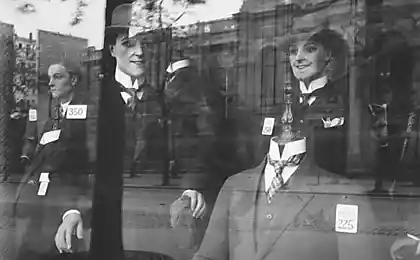238
Communicate like a genius: modern etiquette that will make you your own in any company

The modern world is an arena where social connections are forming faster than ever, and communication is no longer confined to office walls or friendly gatherings. We encounter a huge number of people in a variety of circumstances: in a crowded subway, in line for coffee, at a business meeting in a conference room or even in a relaxed sauna atmosphere. And everywhere there are their own unspoken rules, knowing which you can avoid conflicts and awkward situations, and most importantly - to strengthen your reputation as a polite and tactful person.
Etiquette is not boring rules, but the language in which we communicate with the world, showing respect, openness and readiness for dialogue.
Why are modern etiquette rules so important?
With the development of technology, social networks and globalization, the culture of communication is changing rapidly. What was considered the norm a decade ago can now be perceived as rude or disrespectful. At the same time, society has become more diverse, and each of us willy-nilly learns to interact with people from different cultures, ages, social statuses.
Modern etiquette is not a set of rigid dogmas, but rather a flexible set of tools. It allows us to feel confident in any situation, respect the boundaries of others, and at the same time maintain our own individuality.

1. Etiquette at Work: Balance between Professionalism and Humanity
The working environment is one of the most difficult “fields”, where not only the mood of colleagues, but also career growth depends on our ability to communicate.
- Respect for personal space: Even in open offices and coworking spaces, it’s worth remembering that everyone has the right to be quiet and focused. Don’t barge into a conversation if your colleague is clearly focused or uses headphones as a “busy signal.”
- Contact in messengers: In the era of Slack, Teams and Telegram, the tone of your messages matters. Try to be specific, do not abuse emojis, remember greetings and gratitude. Don’t expect an immediate response: everyone has their own deadlines.
- Feedback: If you have to criticize a colleague, do it constructively. First note the positives, then move on to the problems. Be specific and offer solutions.
Try to see in each colleague a person with their interests and needs. A little more empathy and you will immediately feel the working atmosphere warmer.

2. Public Transport Etiquette: Politeness vs Chaos
The subway and buses are the perfect environment to explore human interaction. In order not to become a hero of irritation of others, you should adhere to a few simple principles:
- Distance: If there is enough space in the car, do not stand close to the neighbor, do not breathe down his head. People value a minimum of personal space.
- Loudness: Try not to talk on the phone too loudly. If you watch videos, use headphones. No one wants to be a spectator of your online activities.
- Lines and seats: On the bus or tram it is better to miss the elderly, pregnant women and people with disabilities forward. Offer them a place without further words - a gesture of politeness and respect will always be noticed.
This approach will not only reduce the degree of tension, but also make your trip more comfortable. It's nice to be in the company of educated people, right?
3. Etiquette in an informal setting: bath, party, bar
Situations with a more relaxed atmosphere also require certain rules. Although they are not so harsh, their observance will help to avoid awkwardness.
- Bathroom: It is a place of rest and relaxation, not a battleground for authority. Do not criticize other people’s habits or look at a person too carefully. Respect personal space and do not impose conversations if the interlocutor clearly prefers to be silent and steamy.
- Party: The owner of the house is the main character. Bring something tasty or interesting with you as a thank you, offer help with preparation or cleaning. Don’t stay too long if you know the meeting is coming to an end.
- Bar or café: Do not shout at the staff, do not discuss loudly the negative aspects of the institution. If something is wrong, say it calmly. Waiters and bartenders are people and should be treated with respect. Be aware of tips in countries where this is accepted.
4. Etiquette in the online space: digital etiquette is the new norm
In the digital world, we also have rules of behavior. In the era of messengers, social networks and video calls, etiquette is no less important than in real life.
- Social media: Do not insult other users, do not engage in endless arguments. Before you publish something, consider whether it will harm someone. Anonymity online is an illusion, and reputation can suffer from rash words.
- Working videoconferences: Turn off the microphone if you don't speak. Try to be well dressed, even if you are at home. Do not interrupt your colleagues and do not forget to say hello when connecting.
- Texting: Don’t expect an instant response, the person may have a schedule. If the question is not urgent, give the interlocutor time to think and answer when he is comfortable.
Digital etiquette is based on the same principles of respect and understanding as offline interaction. Remember, there is a person on the other side of the screen.
5. Basics of modern communication: sincerity, empathy, calmness
The above recommendations are summarized in three basic principles:
- Sincerity: Be yourself. Don’t try to play someone else’s role to impress. The modern world values sincerity and openness.
- Empathy: Try to put yourself in the place of another person. Imagine that you are in his situation. This will help to better understand the motives and feelings of the interlocutor and avoid unnecessary conflicts.
- Calm down: Do not overreact to provocations. Keep your emotions under control is a sign of maturity and self-confidence. If you are trying to get out of balance, respond with restraint and politeness.
“Contemporary etiquette is a means to achieve harmony, not an excuse for limitations. It helps people understand each other and find a common language in all areas of life. ?
Etiquette as a tool of mutual understanding
Modern etiquette is not a bony set of rules that your grandmother taught you. It is a living, changing tool that helps us remain ourselves and at the same time find common ground in a variety of circumstances - from office negotiations to gatherings in the bath. Having mastered these principles, you will become more confident and freer in communication, avoid unnecessary disputes and be perceived by others as a charismatic and pleasant person.
Remember: politeness, respect for other people’s borders, the ability to listen and appreciate other people is not only the key to success, but also the best way to feel comfortable and harmonious in any community.
How to invest in yourself if there is no money
Online store for gardeners Jen Sad opens the spring season























